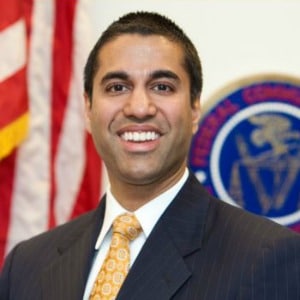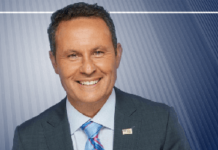
On April 17, the NAB issue of Radio Ink magazine will arrive on your desk (if you are a digital subscriber) and arrive in the mail that week if you subscribe to our print edition. On that cover will be the new Chairman of the FCC, Ajit Pai. The Chairman has been a great friend to radio, especially when it comes to attempting to revitalize the AM band. But what about raising the ownership subcaps in specific markets so broadcasters can better compete with Google, Facebook, and other unregulated digital companies. That’s one of the questions we put to the Chairman in his cover story interview. Here’s an excerpt from that interview.
Radio Ink: Many broadcasters we talk to are advocating that the AM/FM sub-caps be removed. What are your thoughts on that?
Pai: Media-ownership rules — that’s an issue that’s important for the FCC to make sure the rules match the modern marketplace. As you know, a number of those rules reflected what existed back in 1970, so it’s incumbent upon the FCC to carefully consider whether any of these media-ownership rules should be modified or replaced based on current conditions.
For instance, it has been suggested by many that the newspaper-radio cross-ownership rule has no evidence in the record to support it and the FCC rule is not justified. I can’t get into the specific proposals at this time about where we might go in the future with respect to AM/FM sub-caps or the like, but I can say we are going to continue to work to make sure our rules match today’s realities. Additionally, you want to take stock of other issues that might affect this, like foreign investment in U.S. broadcasting, something I’ve talked a lot about in the past.
Radio Ink: In some markets the unregulated Internet companies, such as Google and Facebook, are snatching up more ad dollars than all the radio stations combined. Is the playing field fair?
Pai: In terms of the ownership limits, that’s something I can’t comment on at this time, but I will say, zooming out a little bit, it underscores what I think is one of the central challenges for the FCC going forward. We need to make sure we have a holistic view of the marketplace, and the time when we could ignore competitive services and technologies and focus on the services and technologies that have existed for years is long past.
When it comes to advertising dollars, I hear consistently from radio stations, TV stations, that they are not only competing with each other, they are competing with new media entities that did not exist when these rules were formulated — and that’s part of the argument I’ve tried to make to my colleagues over the years. We can’t have restrictions on certain segments of the industry that don’t apply to others competing in that very same industry.
In this case, if it’s for advertising dollars, we need to make sure we are taking stock of every competitor competing for those ad dollars and make sure the regulatory framework does not artificially disadvantage one segment of the industry because of legacy regulations or inertia. Going forward, this agency is going to be focused on making sure the rules set a level playing field for everyone, to give a fair opportunity to compete and allow every company, big or small, old or new, to innovate in ways that will benefit the consumer.
Radio Ink: So would you say radio is set up to compete fairly in 2017, playing by the rules that were set up, in some cases, decades ago?
Pai: That’s a great question, and I hate to cop out with the equivocating answer, but I would say yes and no. Yes in the sense that what radio does best, very few other entities can do, which is to provide local information in a way that is appealing to consumers and that is distributed in a way that is of tremendous interest to consumers. No in the sense there are some regulations that stand in the way of radio stations being able to recognize efficiencies and to stay in business and thrive as other sectors of the economy do.
For example, the newspaper-radio cross-ownership rule — we have heard there is no evidence in the record to justify the FCC restrictions on newspapers and radio stations in the local market collaborating to collect some of the news of local interest and then distributing it across multiple platforms.
That is the thing we’ve heard from a number of radio stations and newspapers — that you could allow them to compete more fairly and effectively with some of the others who are in the same market. Radio does bring a lot to the table, but it is important for them to have a level playing field to compete.
To subscribe to Radio Ink in time to receive our issue with FCC Chairman Ajit Pai on the cover CLICK HERE





